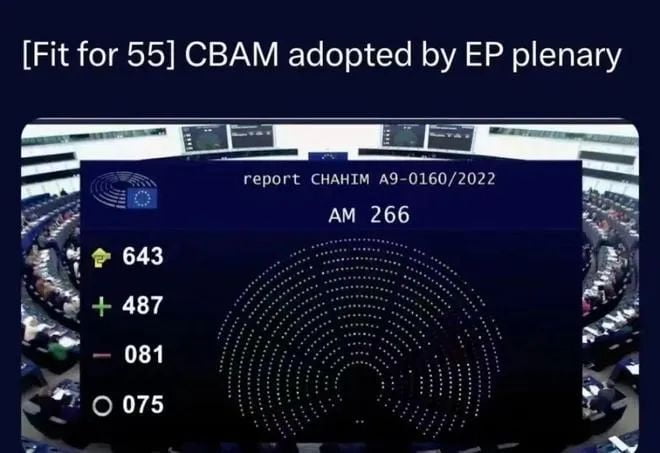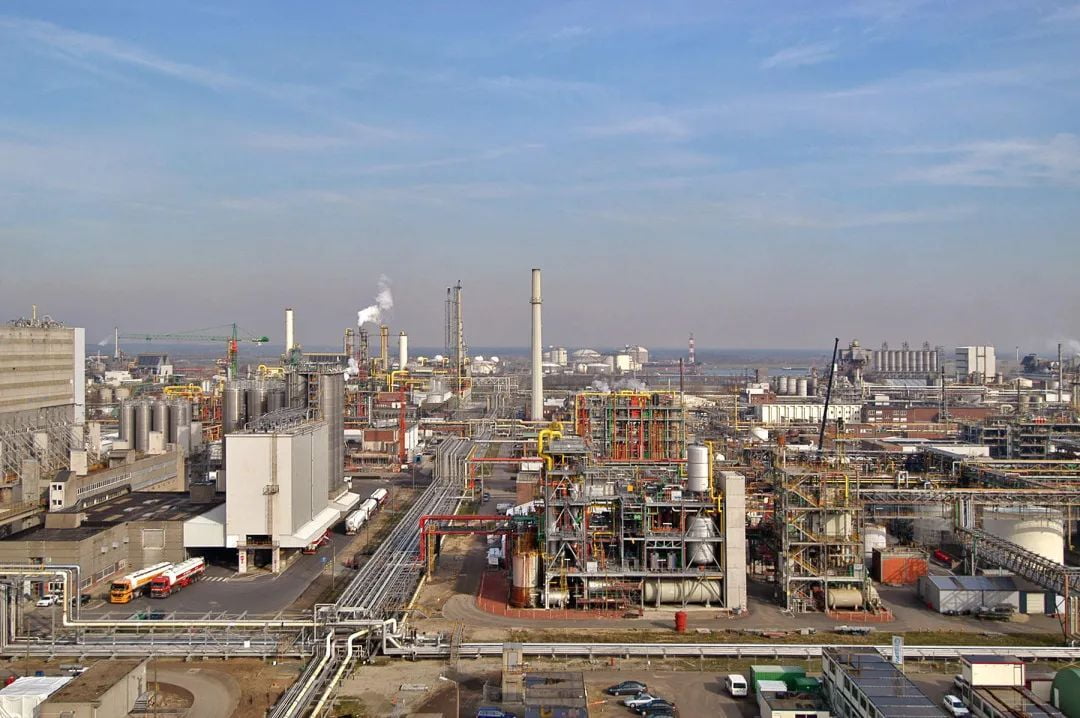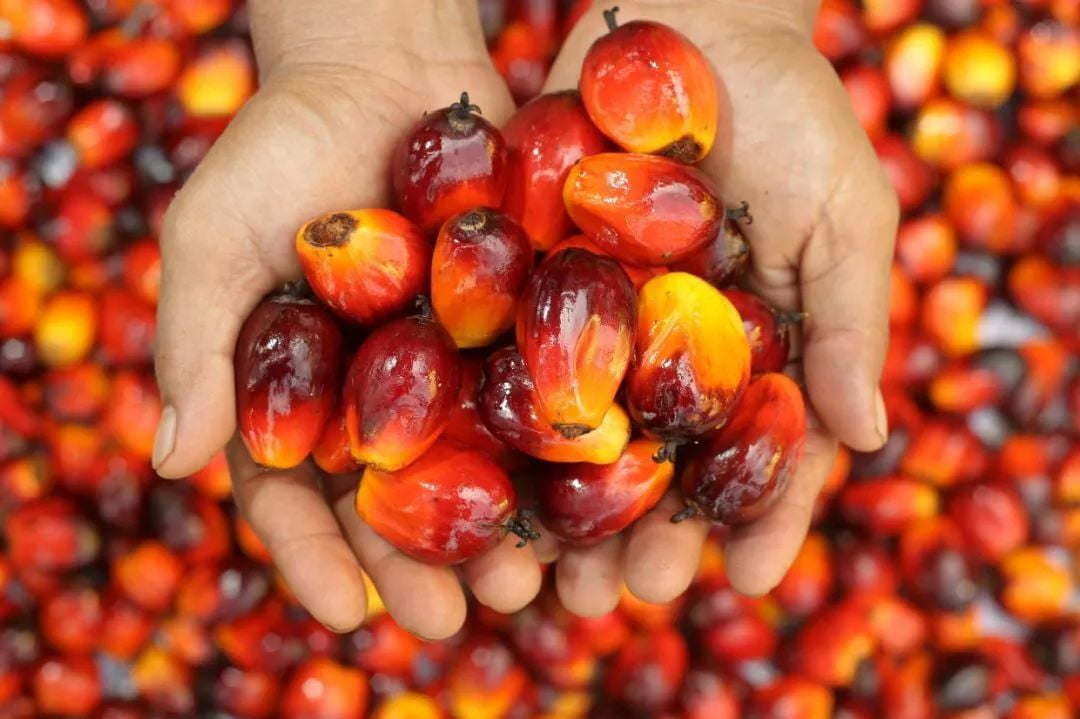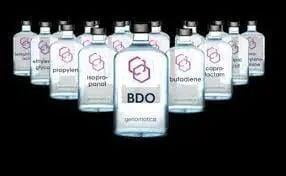As regulatory pressure increases, multinational chemical companies are paying more attention to the carbon footprint of their raw materials.
According to the most widely used international greenhouse gas accounting system, the carbon emissions of enterprises are divided into three ranges:
Scope I: Direct emissions from business-owned emission sources.
Scope II: Indirect emissions resulting from the purchase of electricity, heat and steam for production by enterprises.
Scope III: Other indirect emissions, including the sum of emissions generated by the upstream and downstream chains of the enterprise (e.g., carbon emissions from raw materials for production and transportation stages, recycling of solid products that reach the end of their useful life, etc.)
In the chemical industry chain, usually about 1/3 of carbon emissions are directly related to the production and operation of chemical enterprises, i.e. "Scope 1" and "Scope 2" emissions, but still more than 60% of carbon emissions belong to "Scope 3" emissions. This means that there is still a lot of room for improvement in terms of emissions reduction. Chemical companies are doing everything they can to reduce the carbon footprint of their raw materials.
On April 18, the European Parliament approved a comprehensive reform, ratifying agreements with member states on several key legislative acts for "Fit-for-55" by the end of 2022.
This includes carbon emissions trading system reform, a carbon border adjustment mechanism (i.e., a carbon tariff), and the establishment of a new climate social fund.
The Fit-for-55 program refers to the EU's goal of reducing net greenhouse gas emissions by at least 55 percent by 2030 compared to 1990 levels.

Replacing fossil-based raw materials with bio-based raw materials can significantly reduce the carbon footprint of the final product. I have compiled a list of the latest and leading bio-based raw material products that have been launched to give you an initial insight.
Crestron: Launch of ISCC-certified bio-based MDI and TDI products

Crestron announced the launch of ISCC certified bio-based MDI and bio-based TDI products.
Crestron has signed its first commercial order in Asia Pacific for ISCC PLUS certified low carbon footprint MDI based on a mass balance approach with a partial share of biomass feedstock with China Peak Group. MDI is widely used in footwear, textiles and automotive interiors. It is also used in the production of polyurethane rigid foam, which is used in refrigeration equipment and the construction industry as an efficient insulation material.
Crestron has signed its world's first commercial order for bio-based TDI with Centro Group, a leading global manufacturer and marketer of polyurethane upholstery products headquartered in Hong Kong, aiming to help customers in downstream industries reduce their carbon footprint by providing more and more sustainable raw materials. The first batch of TDI products based on a mass balance approach with partial biomass feedstock share, to be delivered in the first quarter of 2022 from Crestron's Shanghai integration site.
BASF expands climate-friendly portfolio with first zero-carbon-emission MDI

BASF has expanded its methylene diphenyl diisocyanate (MDI) portfolio with the launch of Lupranat® ZERO (Zero Emission, Renewable Source), a greenhouse gas-neutral aromatic isocyanate.
Lupranat ZERO has an accounting cradle-to-gate product carbon footprint (PCF) of zero; this means that on its way out of the BASF plant gate to the customer - all product-related greenhouse gas emissions and the bio-based carbon combined in the product - no additional CO2 is generated.
Lupranat ZERO will first be used in Lupranat M 70 R for the production of MDI polyisocyanurate panels (also known as PIR or polyiso) and rigid polyurethane foam for the construction industry. Rigid foam boards are very durable and are used for insulation.
Wanhua Chemical developed the world's first 100% bio-based TPU material

Wanhua Chemical's 100% bio-based TPU products use bio-based PDI made from corn stalks, and additives such as rice bran wax are also sourced from renewable resources such as non-food chain corn and grated hemp. With the advantages of resource saving and renewable raw materials, we can minimize the carbon emission of end consumer goods. The product also continues to empower the green transformation of footwear, film, consumer electronics, food contact and other fields with its excellent high strength, high toughness, oil resistance and anti-yellowing properties.
In addition, Wanhua Chemical has a variety of bio-based TPU products. In 2021, Wanhua Chemical's bio-based TPU product WHT-ECO13595 was awarded the UL Green Environmental Statement Verification Certificate, which is the first bio-based TPU product in the industry to receive UL certification. WHT-ECO13595 is made from biomass materials and can have a biobased content of up to 40%. Compared with traditional TPU, it is environmentally friendly, renewable raw material, low carbon and environmental friendly without sacrificing any comprehensive performance. According to statistics, every ton of bio-based TPU used can reduce carbon emissions by 20%-40%, contributing significantly to the achievement of the dual carbon target. Wanhua Chemical bio-based TPU covers polyester, polyether and other types of products, with many grades such as ECO82588, ECO87560, ECO12588, ECO66550, etc. The products have a hardness range of 50A-95A and bio-based content of 25-75%, and are widely used in many fields such as footwear, consumer electronics, medical and health care.
SK Chemicals starts mass production of bio-based polyols

SK Chemicals CEO Jeon Kwang-hyun recently announced that the company has established a mass production system of several thousand tons in size and has started operating a dedicated facility to produce a new bio-based polyol material "PO3G" (polytrimethylene ether glycol). The brand name for this material is ECOTRION.
Polyol is an important raw material used in the manufacture of spandex, polyurethane (artificial leather, foam, etc.) and polyurethane elastomers. SK Chemical's ECOTRION is a 100% biomaterial-based eco-friendly material made from fermentation of plants as raw materials that can replace existing petrochemical-based polyols. ECOTRION has received eco-friendly certifications from the United States Department of Agriculture (USDA) and VINCOTTE of Belgium and offers several advantages, such as being softer than existing materials when applied to textiles and artificial leather, and having improved elasticity and abrasion resistance, making it comfortable to wear and less prone to deformation. In addition, the Life Cycle Assessment (LCA) assessment shows that ECOTRION has a 40% reduction in greenhouse gas emissions compared to existing petrochemical-based polyol production processes. Hyundai's Basic Materials Research Center has partnered with SK Chemicals and LX Hausys to develop eco-friendly artificial leather. In this way, Hyundai and Kia have already developed artificial leather using SK Chemicals' ECOTRION for the seats of the Genesis GV60, and are considering it for other models.
Malaysian Palm Oil Board (MPOB) Develops Environmentally Friendly Bio-based Polyols

Researchers at the Malaysian Palm Oil Board (MPOB) have developed more than 10 new palm-based polyols for use in polymer products, particularly environmentally friendly polyurethanes.
The palm-based polyols developed include the Pioneer series of palm oil-based polyols, fatty acid-based polyols, and waste cooking oil-based polyols; and the PolyFAME series of fatty acid methyl ester-based polyols, acrylic acid epoxidized palm oil polyols, and co-polymer polyols, MPOB said.
Genomatica converts sugars directly into BDO through a fermentation process

In 2021, Genomatica closed a $118 million Series C financing to accelerate the global commercialization and expansion of renewable materials that are expected to reduce greenhouse gas emissions by 100 million tons per year.
Genomatica, as a leading company in biosynthesis, has extensive experience in the synthesis and preparation of bio-based materials. Bio-based BDO is one of the important research directions of the company. genomatica has cooperation with Cargill, BASF and other leading companies in the chemical industry.
Genomatica converts sugars directly into BDO through a fermentation process.
In 2016, Genomatica helped Novamont, an Italian company that produces biodegradable plastics, to start the construction of a plant with an annual capacity of 30,000 tons of bio-based BDO for the production of bioplastics.
In early June 2021, Cargill USA, the world's largest privately held company and global head of agriculture, and Helm Germany formed a joint venture called Qore and will invest $300 million to build the first commercial-scale bio-based 1,4-butanediol (BDO) plant in the U.S. It is expected to produce at least 65,000 tons of bio-BDO per year and possibly up to Qore has licensed Genomatica's bio-based BDO process technology.
Evante Introduces New Nymax™ BIO Low Absorbency and Bio-based Polyamide Formulation

Evante introduces the new Nymax™ BIO formulation, a family of bio-based polyamide materials that will help customers achieve their sustainability goals. At present, the water absorption rate of many bio-sourced polyamide materials on the market cannot meet the requirements, and the introduction of new materials has solved this problem.
Nymax BIO materials are available in both glass-filled and unfilled formulations, containing natural fillers made from 16% to 47% renewable plants (corn, straw or wheat). The carbon footprint value of renewable plant-based raw materials has been proven to be much lower than that of commonly used petroleum-based raw materials.
These bio-based materials offer lower warpage and superior surface appearance and coloring capabilities than traditional PA66 glass-filled materials, and Nymax BIO's low-absorbent polyamide formulations are dimensionally stable and long-lasting, effectively addressing water absorption (hygroscopicity) in finished parts.

